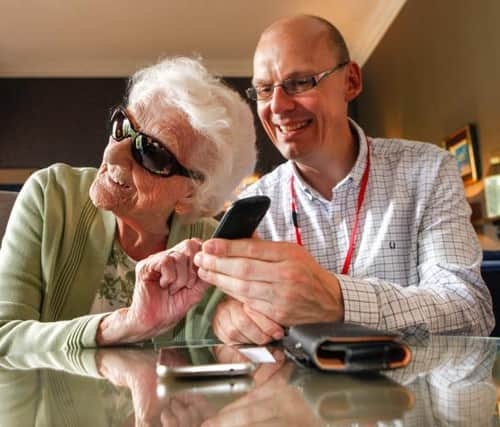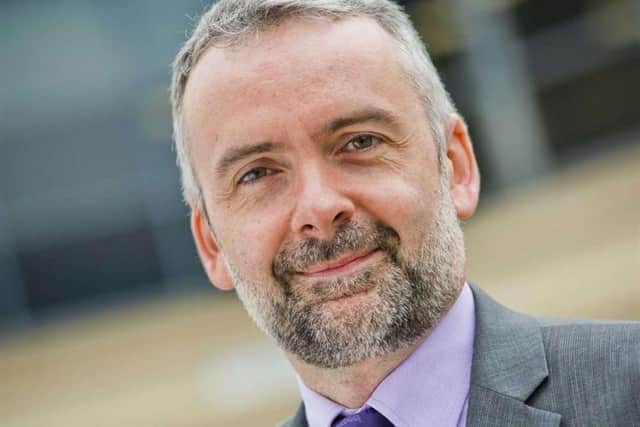Politicians must get behind the ‘Right to Rehab’ = Mark O'Donnell


While sight loss changes lives, it does not mean that people can’t enjoy life to the full and still take part in many of the activities they have enjoyed throughout their lives. Through rehabilitation, blind and partially sighted people can learn new skills to help them live independently and use aids and equipment which can assist them in a wide range of situations.
It is not only for sight loss that rehabilitation is vital, but for a wide range of conditions such as cancer, heart disease, stroke, neurological conditions and people who are recovering from accident and injury, and in the aftermath of the pandemic the effects of long Covid. However, too often people don’t have access to the rehabilitation support they need. As we approach the Scottish Parliament elections we are joining with third sector organisations across the health and social care sector to call for political parties to support a “Right to Rehab” which ensures that everyone has access to rehabilitation support when they need it.
Advertisement
Hide AdAdvertisement
Hide AdAs we make this call, we’re delighted to be working with local authorities to extend our rehabilitation support to many more people living with sight loss. On 1 April, Sight Scotland became the providers of Edinburgh Health and Social Care Partnership’s Visual Impairment Adult Rehabilitation service. On the same day, we also took on responsibility for the East Lothian and Midlothian Visual Impairment Support Service, working with the Health and Social Care Partnerships in East Lothian and Midlothian. We are excited about delivering these services to anyone with sight loss aged 16 and upwards at any stage of sight loss, and their families and carers.


We are already supporting hundreds of blind and partially sighted people to ensure they have the independent living skills they need, whether that be children and young people through the Royal Blind School and education outreach, or Sight Scotland Veterans supporting veterans with sight loss throughout the country.
There can be no more powerful testimony on the importance of rehabilitation than the words of Marjorie Paton, a veteran with sight loss in Midlothian: “When I was diagnosed with macular degeneration, I remember I just burst into tears. I felt like that was the end of my world. But with the support of organisations like Sight Scotland Veterans I’ve learned you can still do things with sight loss. I’ve learned new skills and am using helpful equipment like talking scales – what a difference that has made to my baking. All these things you don’t know exist until you get some support. My sight is getting bad now, but I can still get out. It won’t defeat me.”
Mark O'Donnell is Chief Executive of Sight Scotland and Sight Scotland Veterans
Comments
Want to join the conversation? Please or to comment on this article.